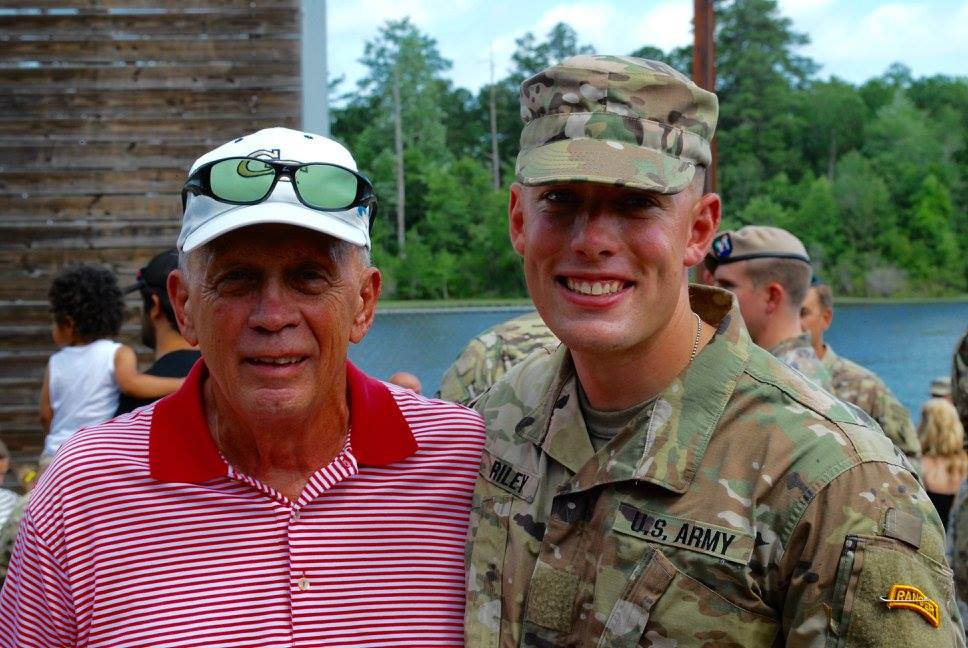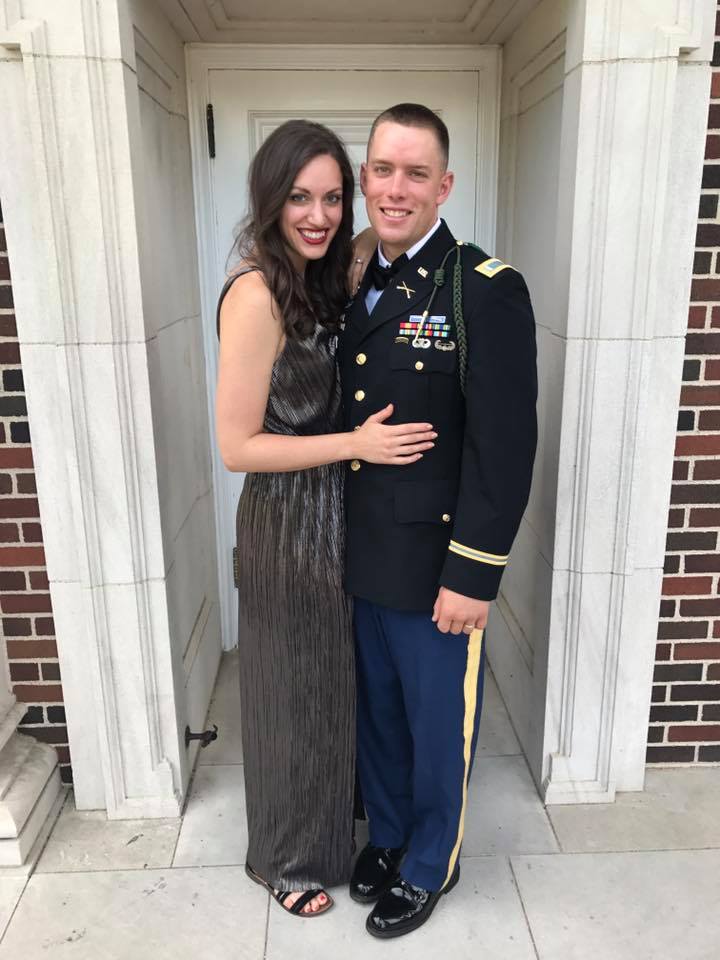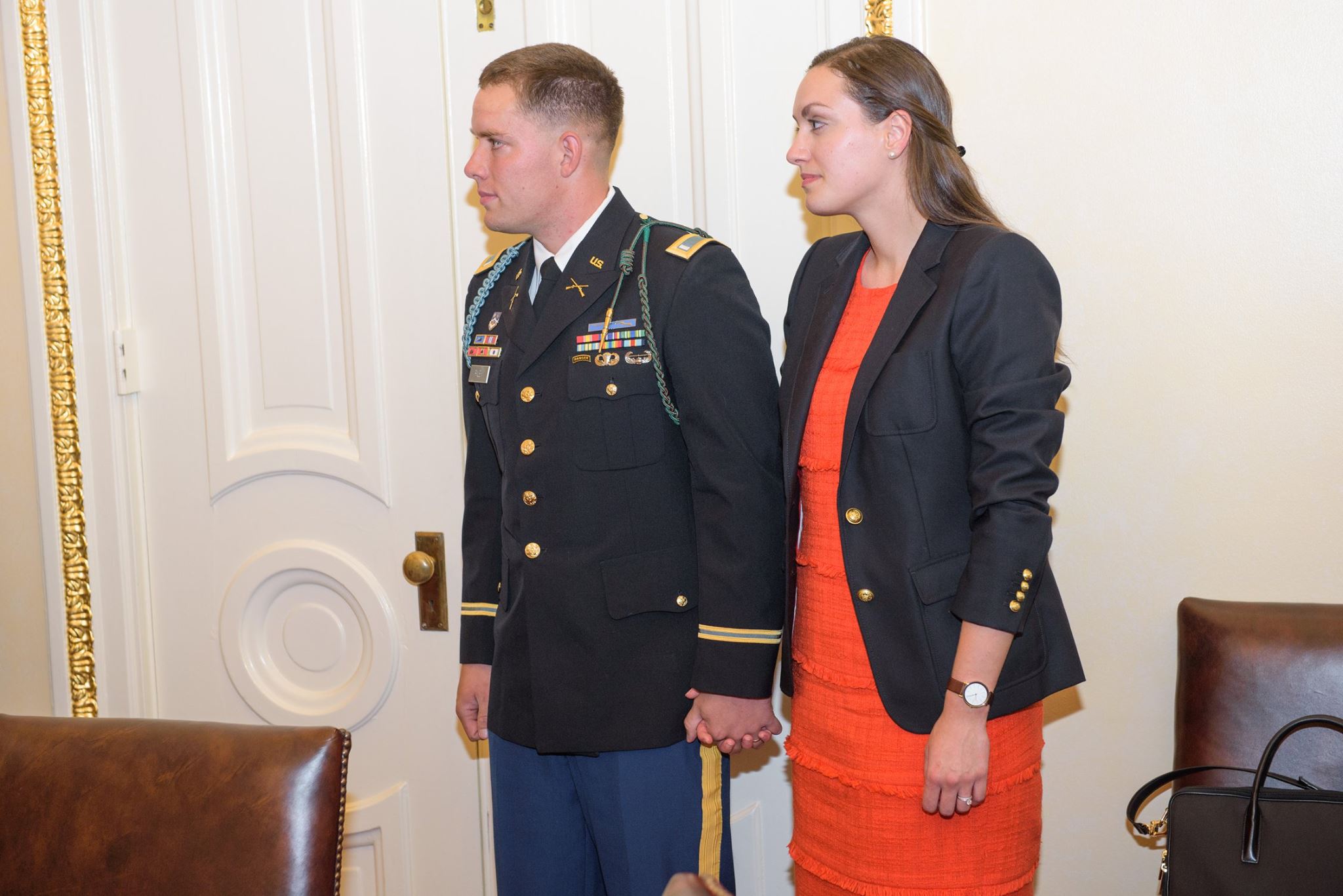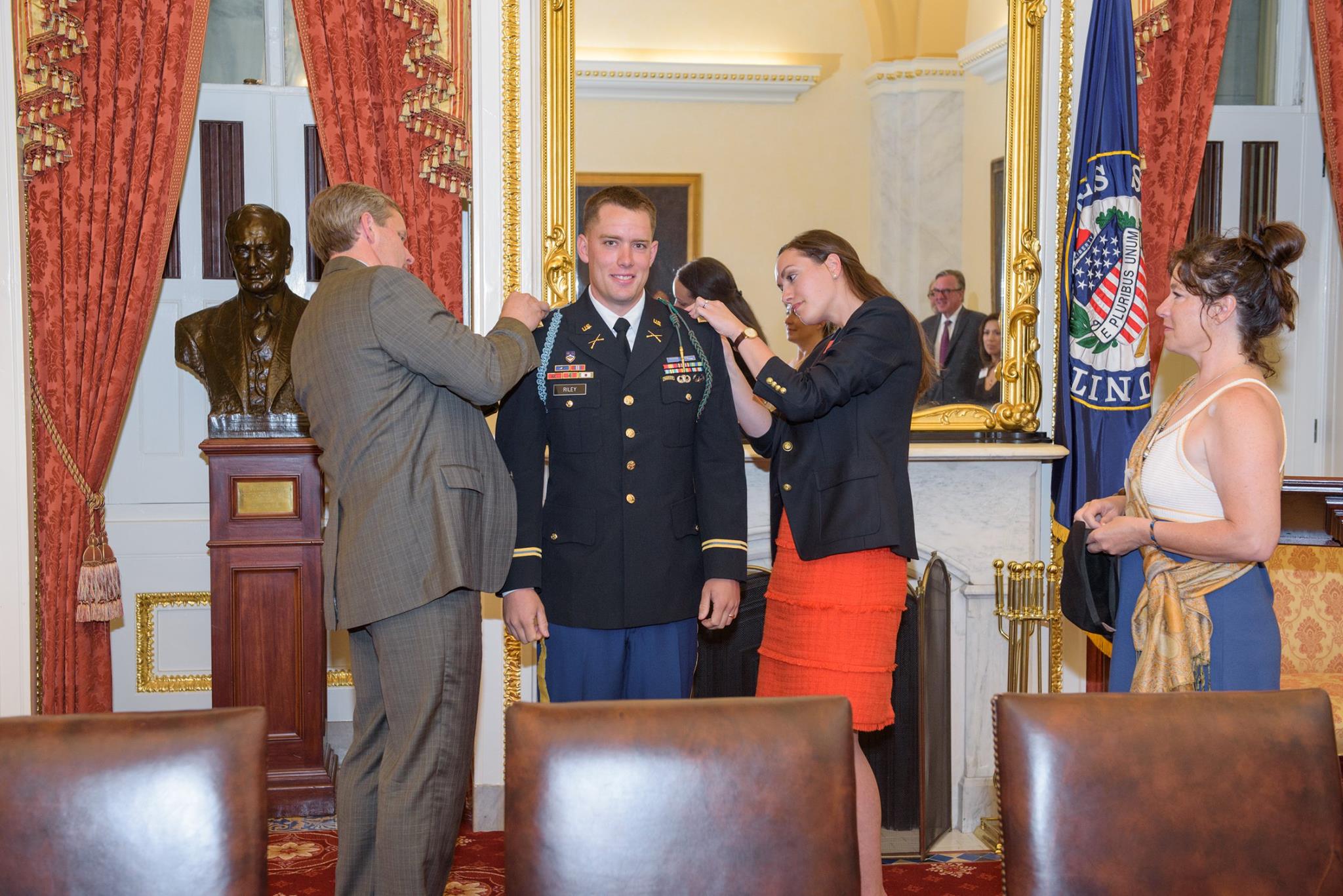Early life and what led you to join the Army?
In high school, I was involved in several student organizations; I wound up being the Governor of Boys State and the President of Boys Nation, which are run by the American Legion, and was the National President of Future Business Leaders of America. So through those different young student organizations I was able to get exposure to both a lot of elevating and impressive people of our generation, who wanted to serve and do great things with their lives. I was also able to receive mentorship from some of those veterans. So I guess for me, the desire to serve in the military went all the way back to when I was a little boy. I went to the University of Virginia and did ROTC and then commissioned as an Infantry Officer in 2013.
Was being an infantry officer the job you always knew you wanted to do?
I always knew I wanted to do infantry. Obviously all the jobs in the military are very important, but when I thought of being in the military, when I was a little boy, the kinds of things I thought of the military doing were the infantry tasks. So that’s what I wanted to do.
Can you take me through the process of a PCS*, and what calls for that to happen?
*Permanent change of station
Basically, all branches of the military have posts all around the world. Instead of keeping people in the same place, or in the same units or doing the same thing, the Army wants you to have exposure to different bases and units. If you’ve been in an Airborne unit they want you to go to an air-assault unit, which is helicopters, or a tank unit, or a sniper unit. So they want you to experience all different flavors of the military, which requires you to move posts.
It’s a huge challenge. On one hand, it can be exciting, because you get to go see another part of the country or another part of the world, and become a member of a new community. On the other hand, it’s very challenging, because everyone hates, particularly once you get kids, the process of moving all your stuff, movers coming into your house and packing everything up in boxes, things get broken, and if you’re in one place for only a year or less, you wonder if it’s even worth unpacking.
Right now, my wife was complaining, because our stuff has been in some sort of storage now for going on twenty-months, because I packed everything up and went to Korea, Thailand and the Philippines for training. I came back and went to Ranger School, and then went to Afghanistan. Then I came to Fort Benning in Georgia, but we’re only here for six months, and now we’re moving again to Tennessee. So there’s a constant pressure that’s put on families, spouses and children with these frequent moves.
Another challenge is spouses finding employment, because it’s hard for them to stay at one company for an extended period of time. Essentially, it’s based on what’s called ‘needs of the Army’, that they decide if you need to move from one post to the next.
Is it frequent for someone to have as many changes in station as you have had?
I was probably moved more than most at this stage in my career. But they say that if you stay in the army for twenty, twenty-five years, you’ll end up moving, on average, every year and a half. My wife just did a retirement ceremony for someone in the Air Force who had been in for twenty years, and they had moved thirteen times. The higher you get promoted, the more often you move.
You had a change in station to the UK. Was that harder of a move, considering it was out of country?
It was probably easier at the time, because I wasn’t married and I didn’t have much stuff. I think I could have fit all of my belongings into two or three suitcases. Subsequent moves have been more difficult because we’ve just accumulated more stuff, and with moving more stuff means more pain.
When you were in the UK you got your PHD from Oxford. Was it difficult finishing your Masters and PHD while being simultaneously active duty?
Yes, I did a Masters and PHD while I was there. I did my Masters from 2013-2015, and then did my PHD from 2015 and finished in 2016.
It was certainly busy. Normally for someone to do a Masters and a PHD would be probably a six or seven-year time commitment. The Army gave me roughly two and a half years. There was no time to dilly-dally for sure.
Can you tell me what inspired you to start Patriot Family Homes?
When I was supposed to move to Fort Benning the first time, we brought a house that we were going to use as a fixer-upper. We started doing some work on it, and the Army then said “Surprise, you’re not going to Fort Benning when you thought you were, it’ll be another eight-months and you’re going to Afghanistan in the meantime.”
So that was a little bit of a side-track. I had this three-bedroom house now with payments on it and I didn’t just want it to let it sit there, so I decided to see if I could rent it out. I went on Facebook to see if anyone was interested and very quickly three different military officers, some of whom were friends of mine expressed interest, and I actually ended up having a waiting list, so I decided to get another one, filled that one up, and had another waiting list. Before long, I realized there was a pretty significant need. So our initial properties were rented out to single guys who would room together, and who wanted to live downtown but not pay for an apartment which could be more expensive.
And then we started moving into single family houses, and now in our portfolio we have some renters who are military families, we still have several single officers who are rooming together, we have several veterans including some disabled vets. So we’re kind of running the gambit in terms of different military people who stay with us. Once again it brings to mind the difficulties that military families face and the frequent moves.
To me, the other really innovative thing we were able to do is use military spouses for our property managers. Fort Benning has been our initial post, but we’re looking to raise some more money and start expanding. We have plans to move to two or three more posts in the next six to nine months, and our goal would be to have facilities at every army post within three to four years. And we use military spouses for our property managers and we plan to use them as realtors, and bring them to other roles to help tackle that other problem of military spouses having difficulty finding flexible employment.
One other thing I’d say is that we started doing short term rentals. Sometimes a military family will show up at a post, and it will be twenty or thirty days before they can move into their house that they want. So there’s a need for temporary housing, and there isn’t anything on post that offers you the ability to do that, and if you try to stay in a hotel room then you’re trying to cram parents, two or three kids, dogs, luggage into a hotel room. So we’re in the process of acquiring a bunch of houses that we do for strictly rentals that we list on AirBnB and work with the housing office so that families, as they show up on post, have a short term. And then also often extended families will want to come in on the holidays, a graduation, or another significant event in a soldier’s life, so we offer the short term rentals for that as well.
How do you balance working on Patriot Family Homes whilst also being active duty?
Not much sleep. It definitely stays busy and my wife helps a lot. But I have found that the best way to increase your bandwidth is to empower people that work for you; take stuff to them and let them excel. That’s what we try to do; find talented people, give them some training, and give them the trust and flexibility to go out and serve our clients.
What is the most rewarding aspect for you working at Patriot Family Homes?
I think the military is at its strongest when it’s a community, and a community that is bound by common commitment to serve the country. When we can create ways for members of that community to serve one another and create homes and jobs that allow not just service members, but their loved ones, to lead meaningful and fulfilling lives, I think that is what is more rewarding for me.




